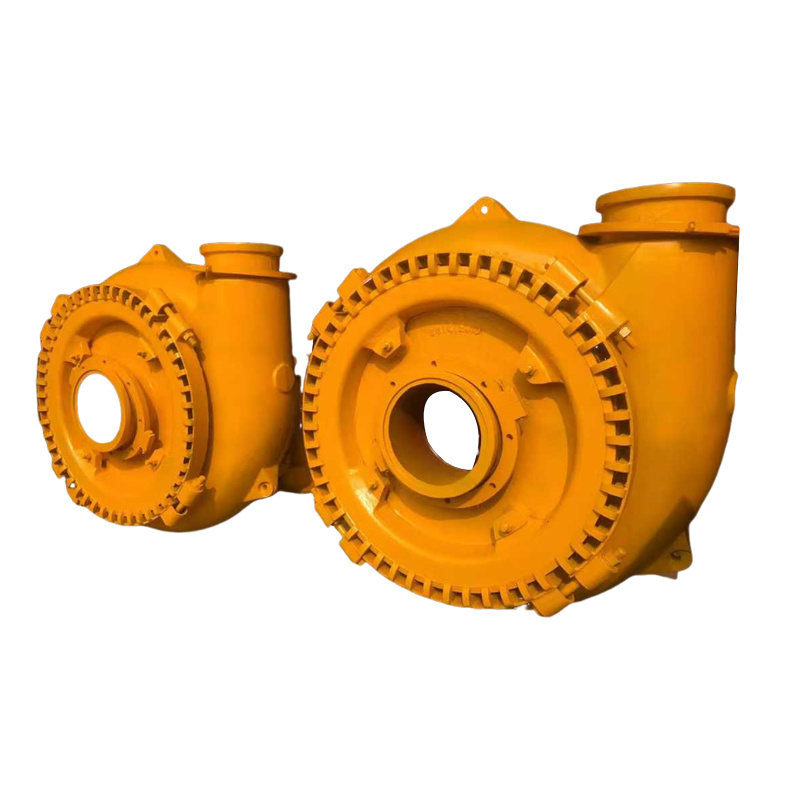Understanding Gravel Pumps: Essential Knowledge for Industrial Applications
Aug 13,2025

Gravel pumps serve a critical role in various industries that require the transportation of heavy and abrasive materials. These pumps are engineered to efficiently move mixtures of water and solid particles, particularly in environments such as mining, construction, and dredging. Understanding the components and operation of gravel pumps can enhance operational efficiency and extend the equipment's lifespan.
**Key Features of Gravel Pumps**
One of the primary features of gravel pumps is their robust construction, which allows them to handle extremely abrasive materials without significant wear. They are typically equipped with high-chrome cast iron or rubber liners that resist erosion. The pump impellers are designed to create a high flow rate, essential for transporting materials over long distances. Additionally, gravel pumps can handle solids of various sizes, making them versatile for different applications.
**Types of Gravel Pumps**
There are primarily two types of gravel pumps: centrifugal and positive displacement pumps.
1. **Centrifugal Gravel Pumps**: These are the most commonly used type. They utilize a rotating impeller to create a centrifugal force that pushes the slurry through the pump. Centrifugal gravel pumps are favored for their efficiency in high-volume applications and ease of maintenance.
2. **Positive Displacement Gravel Pumps**: These pumps operate by mechanically trapping a fixed amount of material and forcing it through the discharge. They are particularly useful for low-flow, high-pressure applications where consistency and reliability are crucial.
**Operational Considerations**
When selecting a gravel pump for your operation, it's essential to consider the following factors:
- **Material Composition**: Assess the types of materials to be pumped, including their size and abrasiveness. This will inform your choice of pump materials and design.
- **Flow Rate and Pressure Requirements**: Determine the required flow rate and discharge pressure for your specific application. Gravel pumps must be capable of meeting these demands to operate effectively.
- **Location and Accessibility**: Evaluate the installation site, as factors such as elevation changes and distance can affect the performance of the pump.
- **Maintenance Needs**: A well-maintained pump is crucial for longevity and efficiency. Consider ease of access for routine maintenance tasks when selecting your equipment.
In conclusion, gravel pumps are indispensable tools in industries dealing with heavy and abrasive materials. Understanding their functionality, types, and operational considerations can guide you in implementing the right solutions for your industrial applications. Whether you're involved in mining, construction, or dredging, having the right gravel pump can significantly impact your productivity and efficiency.
**Key Features of Gravel Pumps**
One of the primary features of gravel pumps is their robust construction, which allows them to handle extremely abrasive materials without significant wear. They are typically equipped with high-chrome cast iron or rubber liners that resist erosion. The pump impellers are designed to create a high flow rate, essential for transporting materials over long distances. Additionally, gravel pumps can handle solids of various sizes, making them versatile for different applications.
**Types of Gravel Pumps**
There are primarily two types of gravel pumps: centrifugal and positive displacement pumps.
1. **Centrifugal Gravel Pumps**: These are the most commonly used type. They utilize a rotating impeller to create a centrifugal force that pushes the slurry through the pump. Centrifugal gravel pumps are favored for their efficiency in high-volume applications and ease of maintenance.
2. **Positive Displacement Gravel Pumps**: These pumps operate by mechanically trapping a fixed amount of material and forcing it through the discharge. They are particularly useful for low-flow, high-pressure applications where consistency and reliability are crucial.
**Operational Considerations**
When selecting a gravel pump for your operation, it's essential to consider the following factors:
- **Material Composition**: Assess the types of materials to be pumped, including their size and abrasiveness. This will inform your choice of pump materials and design.
- **Flow Rate and Pressure Requirements**: Determine the required flow rate and discharge pressure for your specific application. Gravel pumps must be capable of meeting these demands to operate effectively.
- **Location and Accessibility**: Evaluate the installation site, as factors such as elevation changes and distance can affect the performance of the pump.
- **Maintenance Needs**: A well-maintained pump is crucial for longevity and efficiency. Consider ease of access for routine maintenance tasks when selecting your equipment.
In conclusion, gravel pumps are indispensable tools in industries dealing with heavy and abrasive materials. Understanding their functionality, types, and operational considerations can guide you in implementing the right solutions for your industrial applications. Whether you're involved in mining, construction, or dredging, having the right gravel pump can significantly impact your productivity and efficiency.
PREVIOUS:
Contact Us
E-mail :
liu@cnpumpmade.com
WhatsApp:
+8615028256698
Address:
Nanyang Industrial Park, Shifo Town, Anguo City, Hebei Province, China








